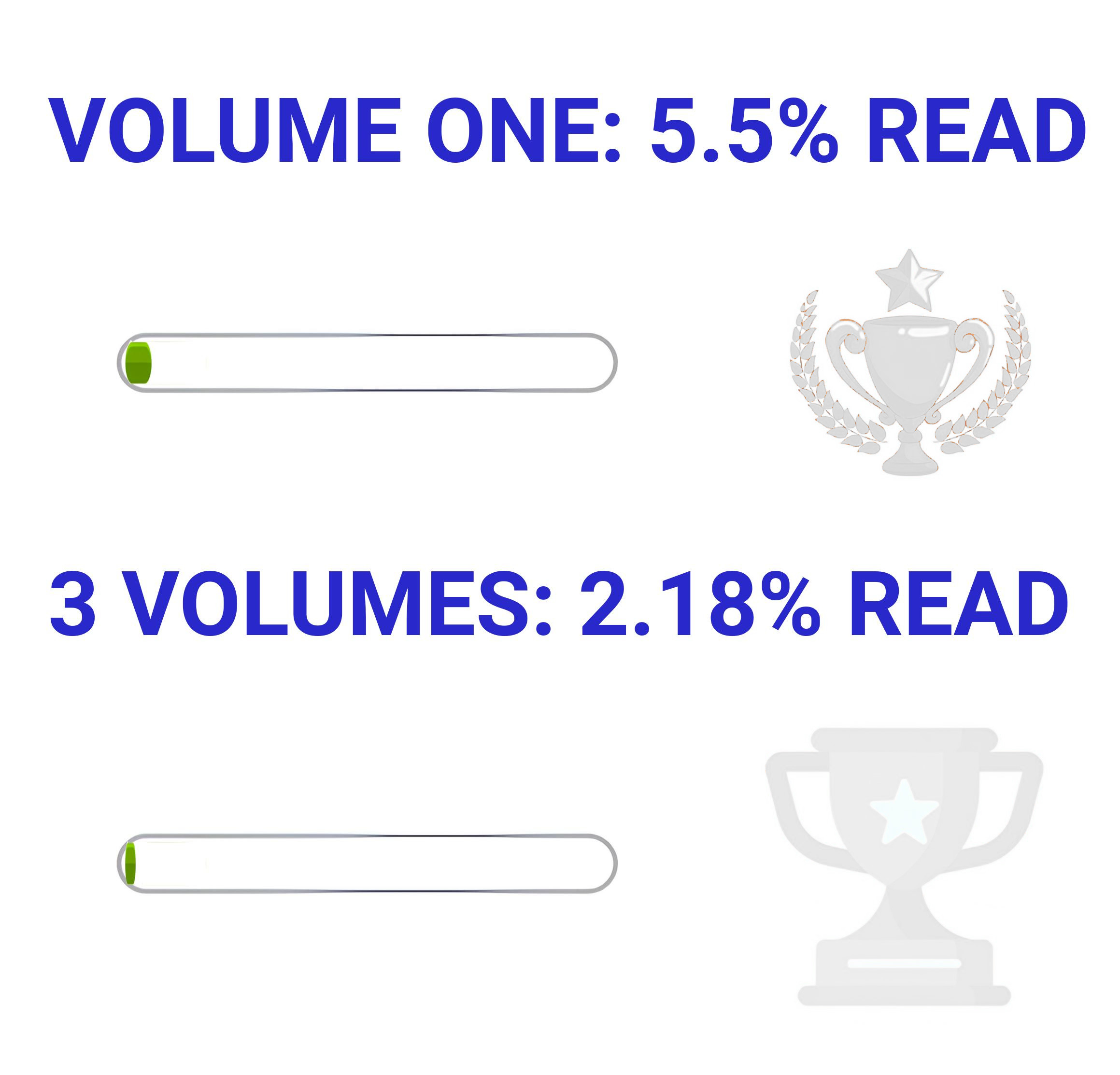Welcome to baby Marxist rehabilitation camp.
We are reading Volumes 1, 2, and 3 in one year. (Volume IV, often published under the title Theories of Surplus Value, will not be included in this particular reading club, but comrades are encouraged to do other solo and collaborative reading.) This bookclub will repeat yearly until communism is achieved.
The three volumes in a year works out to about 6½ pages a day for a year, 46⅔ pages a week.
I'll post the readings at the start of each week and @mention anybody interested. Let me know if you want to be added or removed.
We currently have 58 members!!! I expect a certain drop-off rate, but I'll be thrilled if a dozen or couple dozen read it.
If you've made it this far, you've already read ¹⁄₁₈ of Volume I. The first three weeks are the hardest, after that it'll be quite easy, and only requires 20 minutes a day (endurance is key).
Just joining us? It'll take you about 2-3 hours to catch up to where the group is. You can do that on one long bus ride.
Archives: Week 1
Week 2, Jan 8-14, we are reading Volume 1, Chapter 2 'The Process of Exchange', PLUS Volume 1, Chapter 3, Section 1 'The Measure of Values' PLUS Volume 1, Chapter 3, Section 2 'The Means of Circulation'
In other words, aim to get up to the heading '3. Money' by Jan 14
Discuss the week's reading in the comments.
Use any translation/edition you like. Marxists.org has the Moore and Aveling translation in various file formats including epub and PDF: https://www.marxists.org/archive/marx/works/1867-c1/
Ben Fowkes translation, PDF: http://libgen.is/book/index.php?md5=9C4A100BD61BB2DB9BE26773E4DBC5D
AernaLingus says: I noticed that the linked copy of the Fowkes translation doesn't have bookmarks, so I took the liberty of adding them myself. You can either download my version with the bookmarks added, or if you're a bit paranoid (can't blame ya) and don't mind some light command line work you can use the same simple script that I did with my formatted plaintext bookmarks to take the PDF from libgen and add the bookmarks yourself.
Resources
(These are not expected reading, these are here to help you if you so choose)
-
Harvey's guide to reading it: https://www.davidharvey.org/media/Intro_A_Companion_to_Marxs_Capital.pdf
-
A University of Warwick guide to reading it: https://warwick.ac.uk/fac/arts/english/currentstudents/postgraduate/masters/modules/worldlitworldsystems/hotr.marxs_capital.untilp72.pdf
-
Reading Capital with Comrades: A Liberation School podcast series - https://www.liberationschool.org/reading-capital-with-comrades-podcast/

Additional really helpful section in Theories of Surplus Value
TSV quote (bold added to emphasize money as necessary and essential)